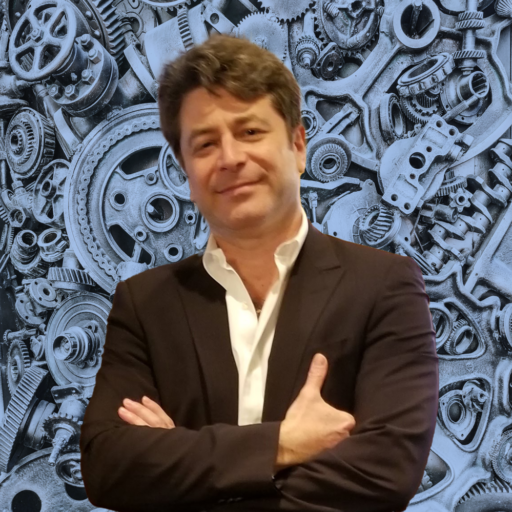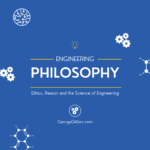Why Continuous Learning is Essential for New Engineers Today

Why Continuous Learning is Essential
Introduction - Continuous Learning
In the dynamic world of engineering, the pace of change is relentless. Technological advancements, emerging methodologies, and evolving industry standards constantly redefine the landscape. For engineers, staying competitive means more than just mastering the fundamentals; it requires a commitment to Continuous Learning.
Therefore, this commitment not only enhances professional capabilities but also drives innovation, adaptability, and career progression. In this article, we will explore the significance of Continuous Learning in engineering careers and provide insights into how engineers can leverage learning opportunities to excel in their professional journeys.
1. The Rapid Pace of Technological Advancements
Engineering is a field characterized by rapid technological shifts. Furthermore, from the development of artificial intelligence and machine learning to the integration of advanced materials and automation in manufacturing processes, the technologies that engineers use are in constant flux. To remain relevant, engineers must continuously update their skills and knowledge. For instance, the rise of electric vehicles has transformed the automotive industry, creating new demands for engineers to understand battery technologies, electric drivetrains, and power electronics. Those who have adapted by learning about these new areas have found themselves at the forefront of innovation, while others who have resisted change risk falling behind.
However, amidst these technological advancements, the importance of adhering to fundamental engineering principles cannot be overstated. Consequently, core concepts such as Newton’s laws of motion, thermodynamics, material properties, and circuit theory remain the bedrock upon which new technologies are built.
Moreover, regardless of the sophistication of modern tools, these foundational principles provide the necessary framework for understanding and innovating within complex systems. Engineers who excel are those who not only embrace new technologies but also ground their innovations in sound engineering practices. For example, while new materials may offer exciting possibilities, an in-depth understanding of stress analysis and structural integrity ensures that these materials are applied safely and effectively. Thus, balancing the pursuit of advanced knowledge with a solid grasp of the fundamentals allows engineers to navigate the ever-evolving landscape without losing sight of the core principles that ensure reliability, safety, and efficiency in engineering design and implementation.
2. Enhancing Skills and Knowledge
Continuous Learning equips engineers with the essential knowledge and skills necessary for success at different stages of a project. Hence, knowledge rooted in fundamental sciences—such as physics, mathematics, and materials science, as well as the standard work of the engineering processes—is critical for tasks like project setup, requirements development, and problem identification. This foundational understanding allows engineers to accurately define project parameters, anticipate potential challenges, and develop robust solutions from the outset for the Total Business Case.
On the other hand, skills are developed through the application of specific tools and methodologies tailored for project execution. This includes proficiency in modern project management frameworks like Agile, process improvement techniques such as Six Sigma, and specialized software tools for design, simulation, or data analysis. These skills are typically acquired through formal education, certifications, online courses, and workshops. Moreover, mastery of these tools not only enhances an engineer’s ability to execute projects efficiently but also drives improvements in process efficiency, cost management, and product quality. By continually upgrading both their foundational knowledge and practical skills, engineers can significantly enhance their contributions to their organizations.
3. Opportunities for Professional Growth
Continuous Learning is directly linked to professional growth. By acquiring new skills and staying updated on industry trends, engineers position themselves for promotions, leadership roles, and specialized positions that may not have been available to them otherwise. For example, an engineer who expands their knowledge of data analytics and digital twins can transition into roles focused on smart manufacturing or predictive maintenance, areas that are in high demand in today’s industrial landscape. Continuous learning also signals to employers a proactive and ambitious attitude, traits that are highly valued in any career.
4. Innovation and Problem-Solving
Innovation is the heartbeat of engineering. In addition, the ability to develop new solutions and improve existing ones often hinges on an engineer’s knowledge and willingness to explore unfamiliar territories. Continuous Learning fosters a mindset of curiosity and experimentation, which is essential for creative problem-solving. Engineers who engage in lifelong learning are more likely to contribute to breakthrough innovations, whether it’s through refining a product design, improving a manufacturing process, or developing entirely new technologies. For example, engineers who have embraced learning in emerging fields like biomimicry or sustainable design have been at the forefront of creating eco-friendly products that meet the growing demand for sustainable solutions.
5. Networking and Collaboration
Learning is not just about acquiring new technical skills; it’s also about connecting with others in the field. Attending seminars, webinars, and conferences allows engineers to network with industry experts, peers, and thought leaders. These interactions can open doors to collaborations, mentorship opportunities, and exposure to new ideas. Moreover, being part of professional societies and attending industry events can provide engineers with a platform to share their own experiences and learn from the successes and challenges of others. Therefore, this collaborative aspect of Continuous Learning enriches the professional experience and can lead to fruitful partnerships that drive career success.
6. Adaptability and Resilience
The engineering landscape is not only rapidly changing but also increasingly unpredictable. Continuous Learning builds adaptability, enabling engineers to pivot when faced with new challenges or when market demands shift. This adaptability is a critical asset, especially in industries like automotive, aerospace, or software development, where change is constant and often disruptive. Continuous learning also contributes to resilience, equipping engineers with a diverse skill set that can mitigate the impact of career setbacks, such as job displacement due to automation or shifting industry priorities. By staying ahead of the curve, engineers can navigate their careers with greater confidence and stability.
7. Resources and Strategies for Continuous Learning
There are countless resources available for engineers seeking to engage in Continuous Learning. Online platforms like Coursera, Udacity, and LinkedIn Learning offer courses on a wide range of topics relevant to engineering. Many universities also provide online certificates and degree programs that can be completed part-time. Additionally, professional organizations such as the IEEE, ASME, and SAE offer workshops, seminars, and certification programs tailored to various engineering disciplines. To make the most of these opportunities, engineers should set clear learning goals, allocate regular time for study, and seek to apply new knowledge to their current projects. Balancing work and learning can be challenging, but prioritizing education as a long-term investment in one’s career can yield significant dividends.
Conclusion - Continuous Learning
In conclusion, Continuous Learning is a cornerstone of successful engineering careers, enabling professionals to navigate the fast-paced and ever-evolving landscape of technology and industry demands. By investing in both foundational knowledge and practical skills, engineers can effectively tackle the complexities of project setup, requirements development, and execution. Hence, a deep understanding of core scientific principles provides the necessary framework for defining and solving problems, while proficiency in specialized tools and methodologies enhances the efficiency and quality of project outcomes.
In addition, this dual focus on knowledge and skills equips engineers to not only keep pace with technological advancements but also to drive innovation and adaptability within their organizations. Finally, whether through formal education, certifications, or hands-on experience, continuous learning empowers engineers to expand their capabilities, seize new opportunities, and advance their careers. Therefore, embracing lifelong learning as a strategic approach not only enriches individual expertise but also ensures that engineers remain at the forefront of their fields, ready to meet the challenges of today and the innovations of tomorrow.
References:
- https://www.techtarget.com/whatis/definition/continuous-learning
- https://www.linkedin.com/pulse/importance-lifelong-learning-engineers-adam-taleb-bendiab/
- https://semiengineering.com/continuous-education-for-engineers/
- https://georgedallen.com/navigating-chaos-systems-engineering-in-vehicle-occupant-sensing/
About George D. Allen Consulting:
George D. Allen Consulting is a pioneering force in driving engineering excellence and innovation within the automotive industry. Led by George D. Allen, a seasoned engineering specialist with an illustrious background in occupant safety and systems development, the company is committed to revolutionizing engineering practices for businesses on the cusp of automotive technology. With a proven track record, tailored solutions, and an unwavering commitment to staying ahead of industry trends, George D. Allen Consulting partners with organizations to create a safer, smarter, and more innovative future. For more information, visit www.GeorgeDAllen.com.
Contact:
Website: www.GeorgeDAllen.com
Email: inquiry@GeorgeDAllen.com
Phone: 248-509-4188
Unlock your engineering potential today. Connect with us for a consultation.

